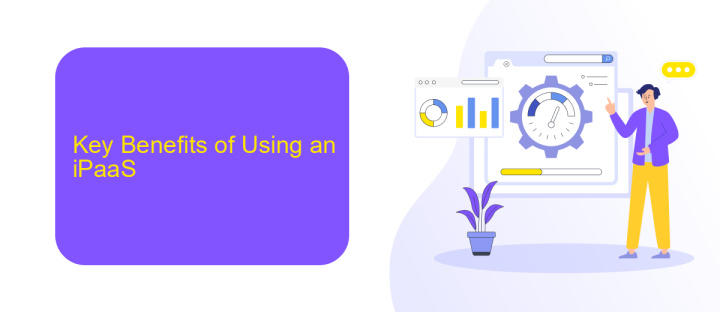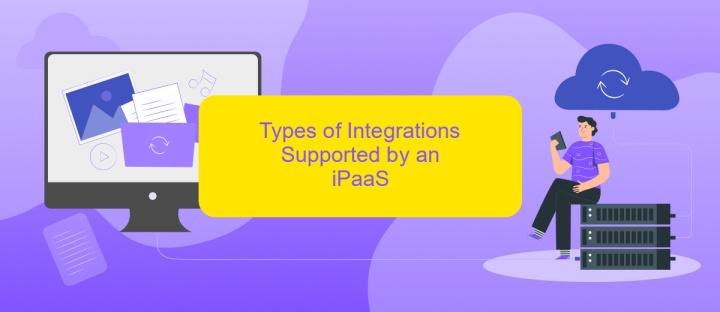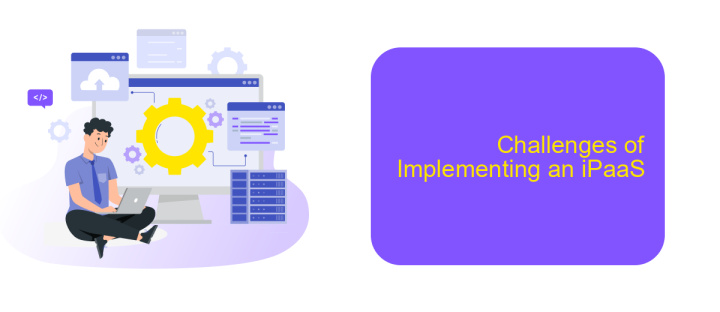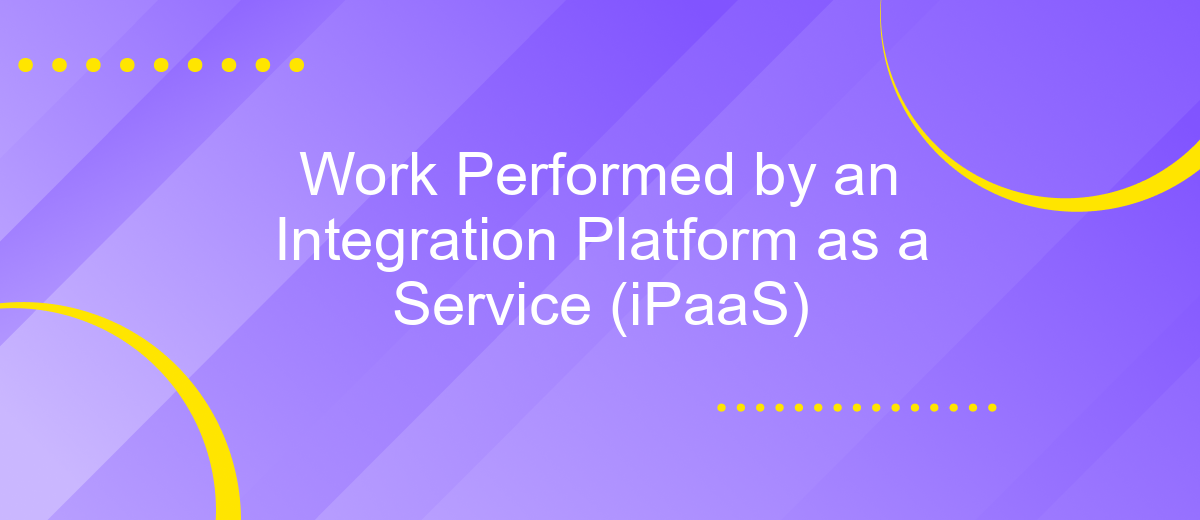Work Performed by an Integration Platform as a Service (iPaaS)
In today's rapidly evolving digital landscape, businesses require seamless integration of various applications and data sources to stay competitive. Integration Platform as a Service (iPaaS) offers a cloud-based solution that simplifies and accelerates this process. By providing a centralized platform for integrating disparate systems, iPaaS enhances operational efficiency, streamlines workflows, and enables real-time data sharing, driving innovation and growth.
Introduction
In today's digital landscape, businesses increasingly rely on diverse software applications to streamline operations and enhance productivity. However, integrating these disparate systems can be a complex and time-consuming challenge. This is where Integration Platform as a Service (iPaaS) comes into play, offering a unified solution to connect various applications and automate workflows seamlessly.
- Streamlined data synchronization between multiple systems
- Automated workflow management
- Real-time data processing and analytics
- Scalability and flexibility for growing businesses
One notable example of an iPaaS provider is ApiX-Drive, which facilitates the integration of over 200 different applications without requiring any coding skills. By leveraging such platforms, organizations can significantly reduce the time and effort needed to set up and maintain integrations, allowing them to focus more on core business activities and innovation.
Key Benefits of Using an iPaaS

An Integration Platform as a Service (iPaaS) offers a myriad of benefits for businesses looking to streamline their operations. One of the primary advantages is the ability to seamlessly connect disparate systems and applications, thereby enhancing data flow and operational efficiency. This means that businesses can automate workflows, reduce manual data entry, and minimize errors, leading to significant time and cost savings. Furthermore, iPaaS solutions often come with user-friendly interfaces and pre-built connectors, making it easier for non-technical staff to set up and manage integrations without the need for extensive IT involvement.
Another significant benefit of using an iPaaS is its scalability and flexibility. As businesses grow and evolve, their integration needs can change rapidly. iPaaS platforms like ApiX-Drive provide the agility to quickly adapt to these changes, offering scalable solutions that can handle increasing data volumes and complex integration requirements. Additionally, iPaaS platforms often come with robust security features, ensuring that data is protected during transfer and storage. This level of adaptability and security makes iPaaS an invaluable tool for businesses aiming to stay competitive in a fast-paced digital landscape.
Types of Integrations Supported by an iPaaS

An Integration Platform as a Service (iPaaS) supports various types of integrations, facilitating seamless data flow between different applications and systems. These integrations are essential for automating workflows, synchronizing data, and enhancing operational efficiency.
- Application Integration: iPaaS enables the connection of various software applications, allowing them to communicate and share data. This is crucial for businesses using multiple SaaS applications.
- Data Integration: This type of integration focuses on consolidating data from different sources into a unified view, ensuring data consistency and accuracy across the organization.
- Process Integration: iPaaS facilitates the automation of business processes by integrating different systems and applications, streamlining operations and reducing manual intervention.
- B2B Integration: It supports the integration of business processes and data across different organizations, enhancing collaboration and data exchange with partners, suppliers, and customers.
Services like ApiX-Drive simplify the setup of these integrations by providing user-friendly interfaces and pre-built connectors. This allows businesses to quickly connect their apps and automate workflows without extensive technical knowledge, thereby maximizing the benefits of an iPaaS solution.
Challenges of Implementing an iPaaS

Implementing an Integration Platform as a Service (iPaaS) can present several challenges that organizations must navigate. One of the primary difficulties is the complexity of integrating diverse systems and applications, which often have different data formats and communication protocols. This can lead to significant time and resource investments to ensure seamless interoperability.
Another challenge is ensuring data security and compliance. With data flowing between multiple systems, maintaining robust security measures and adhering to regulatory requirements becomes crucial. Organizations need to implement strong encryption, access controls, and monitoring mechanisms to protect sensitive information.
- Complexity of integrating diverse systems
- Ensuring data security and compliance
- Managing scalability and performance
- Handling real-time data synchronization
Additionally, managing scalability and performance can be daunting, especially as the volume of data and number of integrations grow. Tools like ApiX-Drive can help streamline this process by providing pre-built connectors and automation features, reducing the burden on IT teams. However, careful planning and ongoing management are essential to address these challenges effectively.
Conclusion
In conclusion, the implementation of an Integration Platform as a Service (iPaaS) significantly enhances the efficiency and flexibility of modern business operations. By automating data integration and streamlining workflows, iPaaS solutions reduce the complexity and cost associated with manual integration processes. This technological advancement allows organizations to focus on their core business activities while ensuring seamless connectivity between various applications and systems.
Services like ApiX-Drive exemplify the potential of iPaaS by offering user-friendly interfaces and robust integration capabilities. With ApiX-Drive, businesses can easily set up and manage integrations without the need for extensive technical expertise, thus democratizing access to powerful integration tools. As a result, companies can achieve faster time-to-market, improved data accuracy, and enhanced overall productivity. Embracing iPaaS solutions like ApiX-Drive is a strategic move towards achieving operational excellence in today's interconnected digital landscape.
FAQ
What is an Integration Platform as a Service (iPaaS)?
How does iPaaS benefit businesses?
Can iPaaS be used by non-technical users?
What types of integrations can be achieved with iPaaS?
Is it possible to monitor and manage integrations in real-time using iPaaS?
Time is the most valuable resource in today's business realities. By eliminating the routine from work processes, you will get more opportunities to implement the most daring plans and ideas. Choose – you can continue to waste time, money and nerves on inefficient solutions, or you can use ApiX-Drive, automating work processes and achieving results with minimal investment of money, effort and human resources.

